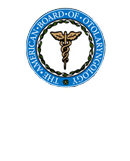Winter and Your Sinuses
Many people only associate sinus trouble with spring allergy season or fall hay fever. However, all weather changes can bring about bothersome sinusitis symptoms. In fact, many people who suffer from sinusitis year round find that their symptoms are actually worse during the winter.
There are certain factors that can cause the sinuses to be more aggravated during the cold weather months.
Dry air. Here in New York, our winters can be brutally cold. These cold temperatures bring with them very dry air, which can cause the mucous linings in the nose to dry out. This leads to thicker mucus production, which leads to congestion and infection. You can combat dry air in your home with a humidifier.
Indoor heating. When it is cold outside, you certainly want to be at a comfortably warm temperature indoors. Central heating units can dry out the air inside your home or office, and having a wood fire at home can irritate the nasal passages. It is important to filter the indoor air while keeping it humid (with a humidifier) and warm. Investing in a HEPA-filter will help keep your indoor air clean.
Carpets, blankets, and winter bedding. It is always cozy to cuddle up with warm blankets on the floor in front of the fireplace or in your bed. However, carpets, blankets, and winter bedding are notorious for collecting dust particles. Dust is a common trigger for sinusitis. Make sure you are combating the dust with extra vacuuming and airing out your linens.
Indoor pets. While those with pets love their pets, it is important to understand that pet dander is one of the most common triggers for sinusitis. Be sure to vacuum, dust, and clean your vents often to keep pet dander to a minimum.
Cold and flu season. Germs are rampant during winter months. With colds and the flu viruses everywhere, those who suffer from sinusitis are more susceptible to sinus infections during this time. If you notice congestion and pain in your sinuses that are not clearing up within just a couple of days, it is time to consult your doctor before a full-blown infection occurs.













